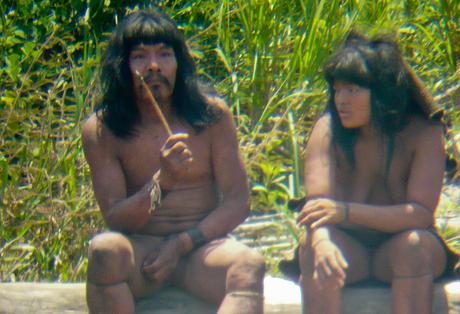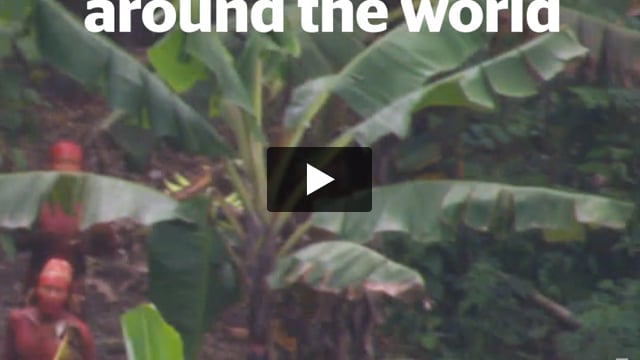British TV company accused of bringing ‘epidemic’ to isolated Indians
March 26, 2008
This page was last updated in 2008 and may contain language which is now outdated.
A fierce controversy is raging in the Peruvian Amazon over the activities of a film crew working for the British TV company Cicada Films. Local Indians, government officials and independent scientists have accused the film-makers of visiting very isolated Indian communities, despite being warned not to. The isolated Indians reported later that the visit provoked an epidemic of respiratory disease that left four people dead and others seriously ill.
Cicada Films, however, adamantly deny the allegations. They say, ‘We emphatically deny being responsible of [sic] the introduction of the reported respiratory diseases, since when we arrived we found local people already ill with symptoms and signs of respiratory disease, in the settlements we visited.’
The crew were apparently scouting locations for a reality TV show called ‘World’s Lost Tribes’, to be broadcast on Discovery Channel.
According to Dr. Glenn Shepard, an American anthropologist who was in the Matsigenka Indian community of Yomybato when the film crew were there, the film-makers were disappointed that the villagers were ‘Westernised’. In a written statement Dr. Shepard says the film-makers complained, ‘The shorts, the guys playing soccer, the school… That just won't cut it.’
Dr. Shepard says in his statement that the film-crew decided to travel further upriver to very isolated Indian villages, although he warned the crew that, due to the Indians’ isolation and their lack of resistance to common Western diseases, such a trip could seriously endanger their lives.
According to a statement from the regional Indian organization FENAMAD, the crew did indeed travel deep upriver and provoked a flu epidemic, resulting in several deaths. FENAMAD accuse the film-makers of ‘threatening the lives of isolated Indians’, and have called for Cicada Films to be blocked from entering the area again.
The head of the government’s Protected Areas department has written that the Cicada team ‘were given a permit to visit only the community of Yomybato; that the permit expressly prohibited visiting uncontacted or recently-contacted Indians… [but] the permit was not respected and the Cicada team entered [remote headwaters] which are part of the Strictly Protected Zone’. They have also said that the team will not be allowed into the area again.
Cicada Films previously caused controversy with a documentary about an expedition to visit Indians in Ecuador, which allegedly provoked an attack from uncontacted Waorani Indians.
In response to the FENAMAD statement, Cicada Films says, ‘The accusations made do not tally with the facts, as we never entered the headwaters, we were not in the locality quoted at any time and certainly not at the time of any outbreak and, in any case, there has been no officially reported outbreak.’
Stephen Corry, Director of Survival, said today, ‘This controversy highlights how the interests and welfare of tribal people can potentially be put at risk by reality TV programmes chasing ratings. Since the success of the BBC’s Tribe series, which brought tribal peoples’ lives to the small screen in a sensitive way, there has been a whole rash of bizarre and extreme programmes on the subject. The key principles here are sensitivity and accuracy, something TV companies are often not good at.’
For more information contact Miriam Ross on (+44) (0)20 7687 8734 or email [email protected]



